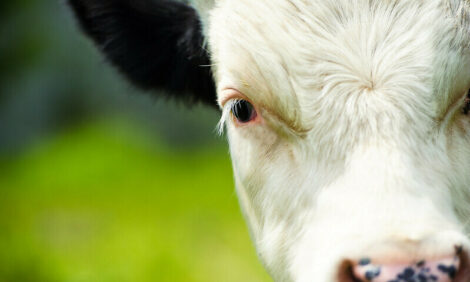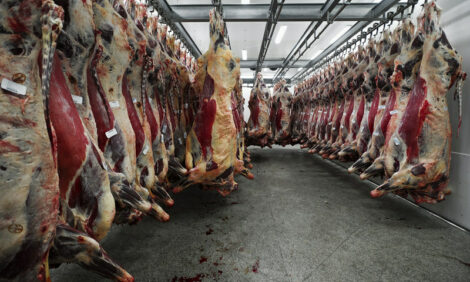



NI Urges Import Caution with Schmallenberg
NORTHERN IRELAND, UK - The Ulster Farmers’ Union, along with the Northern Irish (NI) veterinary, agricultural, beef and sheep associations, are calling on farmers to remain vigilant and cautious with regard to importing livestock following confirmation of further outbreaks of the Schmallenberg Virus (SBV) in Northern Europe. SBV is a newly identified disease that is currently threatening the sheep and cattle industry in regions of mainland Europe and the South East of England. Little is known about the disease, including the geographic distribution, transmissibility of infected animals and the virus origin. At present there is no validated antibody tests available to demonstrate exposure to the virus and no vaccine is likely to be available in the imminent future.
It is thought the SBV is spread by midges and clinical signs include fever, reduced milk yield, loss of body condition, and in some cases diarrhoea. The main impact is believed to be on pregnant animals and their unborn offspring. At this stage the disease is not fully understood and it is not notifiable so DARD are not able to put in place import restrictions and there are no control measures in place in any of the affected countries in the EU.
The top priority is to keep Northern Ireland’s livestock population free of SBV and the groups are appealing to all farmers to be extremely cautious when considering importing animals from the risk areas. Currently risk areas include: Belgium, the Netherlands, Germany, France and the South East of England. DARD’s veterinary risk assessment highlights that the best method of mitigating the risk of SBV incursion is to place a voluntary ban on the importation of ruminants.
The assessment goes on to say that if importation is business critical, then importation should preferably occur during the period December to April inclusive with animals being non-pregnant prior to arrival. Such animals should also be sourced from regions that are free of SBV and from farms where no clinical signs suggestive of SBV infection have been observed.
Based on this assessment the current advice to farmers is:
- Remain vigilant with regards to the changing profile of this disease.
- Keep informed about the developing spread of the disease across Europe and take this information into consideration when planning imports.
- Where possible, avoid imports from high-risk areas.
- If importing livestock from high-risk areas is unavoidable exercise extreme caution - enquire about the health history of herds of origin and restrict imports to the Transmission Free Period (TFP) when midges are least active. Based on historic records the TFP runs from 1 November to 30 April.
- Avoid importing pregnant animals, there is a risk that they may have been exposed to the virus and the foetus already affected.
- To assist with early detection, should infection occur here, farmers should inform their veterinary surgeon of any stillbirth, malformation or nervous disease in new born animals or foetuses born to ruminant dams imported from mainland Europe since June 2011.
- Inform vets about any serious malformations or nervous signs in new born animals in their herds or flocks, this will help to provide additional assurance that the disease is not already present here.
In the past, the Northern Ireland Livestock Industry has demonstrated how responsible actions and increased vigilance can keep diseases from reaching our shores. A perfect example of this has been the concentrated effort made by farmers that has enabled Northern Ireland to remain Bluetongue free. Once again the industry is facing another potentially costly and devastating disease which is why it is vitally important that everyone involved works together to protect the industry and to keep Schmallenberg Virus out of Northern Ireland.
Further Reading
| |
- | Find out more information on Schmallenberg by clicking here. |
TheCattleSite News Desk


